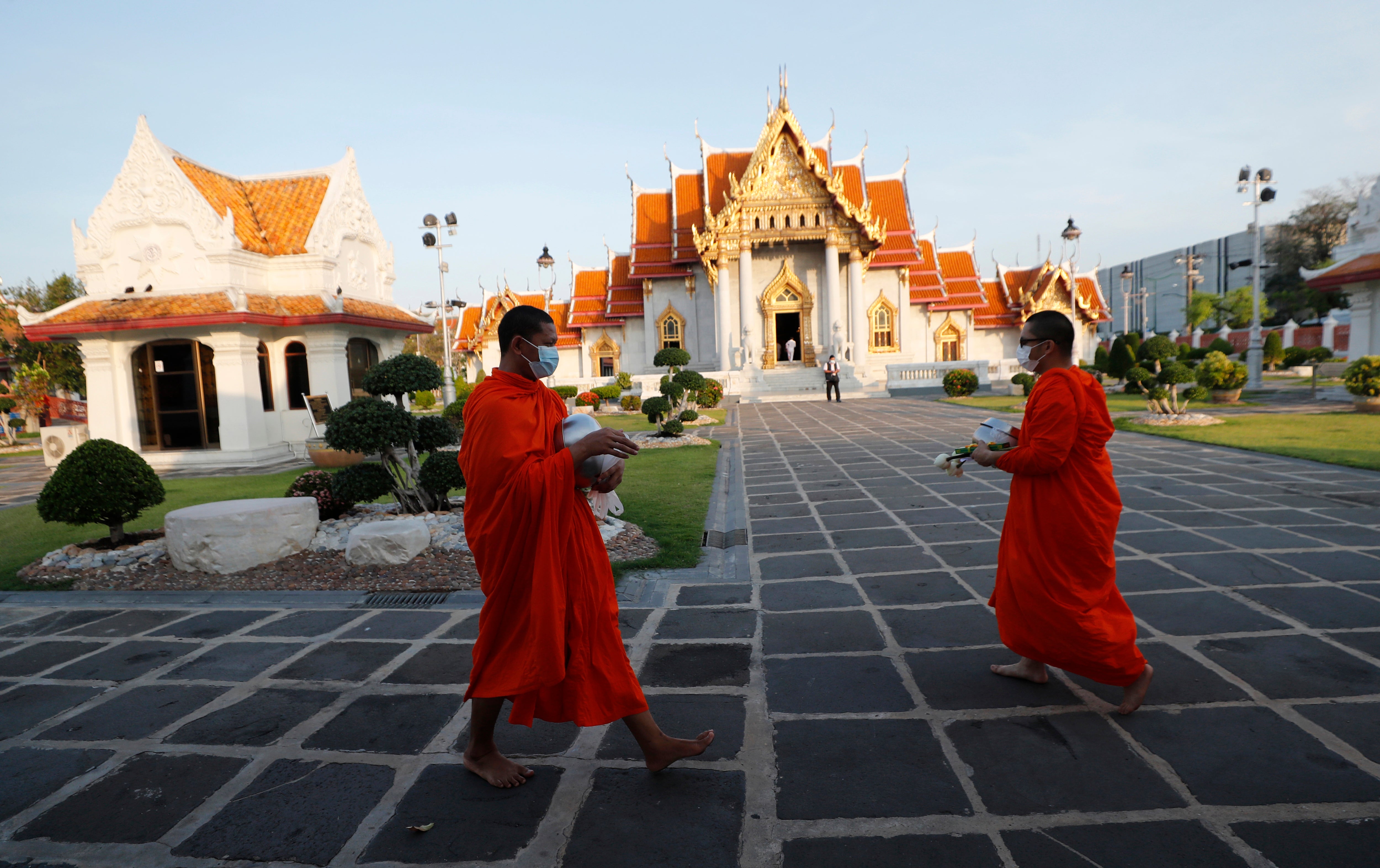Thailand gov't negotiating to buy Pfizer coronavirus vaccine
Thailand's prime minister, under intense criticism for failing to secure adequate supplies of coronavirus vaccines, says his government is negotiating to buy 5 million to 10 million doses from U.S. pharmaceutical company Pfizer

Your support helps us to tell the story
From reproductive rights to climate change to Big Tech, The Independent is on the ground when the story is developing. Whether it's investigating the financials of Elon Musk's pro-Trump PAC or producing our latest documentary, 'The A Word', which shines a light on the American women fighting for reproductive rights, we know how important it is to parse out the facts from the messaging.
At such a critical moment in US history, we need reporters on the ground. Your donation allows us to keep sending journalists to speak to both sides of the story.
The Independent is trusted by Americans across the entire political spectrum. And unlike many other quality news outlets, we choose not to lock Americans out of our reporting and analysis with paywalls. We believe quality journalism should be available to everyone, paid for by those who can afford it.
Your support makes all the difference.Thai Prime Minister Prayuth Chan-ocha, under intense criticism for failing to secure adequate supplies of coronavirus vaccines, said Tuesday his government is negotiating to buy 5 million to 10 million doses from U.S. pharmaceutical company Pfizer
Thailand is experiencing a new wave of the coronavirus, with the number of daily new cases surpassing 1,000 this month for the first time. Health officials on Tuesday announced 1,443 new cases and four new fatalities, bring the totals to 45,185 cases and 108 deaths.
The surge of cases has strained the ability of hospitals to supply rooms for COVID-19 patients, but the government says new field hospitals should provide enough capacity. Thailand has a policy of hospitalizing all people who test positive for the virus.
Concern has been heightened because many of the new cases, traced to nightspots in and around Bangkok are from the more contagious B.1.1.7 variant first identified in Britain
Prayuth told reporters that the National Vaccine Institute is negotiating with Pfizer over the price and other conditions for the supply of 5 million to 10 million doses, with delivery to start in July and be completed by December.
His government has been widely criticized for making late and inadequate efforts to secure vaccine supplies, which so far include delivery of only about 2 million doses of AstraZeneca and Chinese Sinovac vaccines. As of Monday, just under 1% of Thailand’s 69 million people had received at least one vaccine dose.
The government originally planned to secure 63 million doses this year, most of which would be the AstraZeneca vaccine, with local production slated to begin in June.
Prayuth said 500,000 more doses of the Sinovac vaccine are to arrive in Thailand on Saturday.
Thailand kept the coronavirus in check for most of last year, when it reported about 7,000 cases including 63 deaths. Lockdowns and curfews were imposed for several months and the country was shut to foreign tourists, which had a tremendous economic cost.
Prayuth’s government has not taken such severe measures during the current outbreak, fearing more damage to businesses.
However, provinces are allowed to impose their own restrictions. The Interior Ministry said 47 provinces have ordered 14-day quarantines for arriving travelers.
Starting Wednesday, the popular southern resort province of Phuket will require visitors to be fully vaccinated before arrival or have certificates that they are not infected. Without such certification, they must undergo a test on arrival.